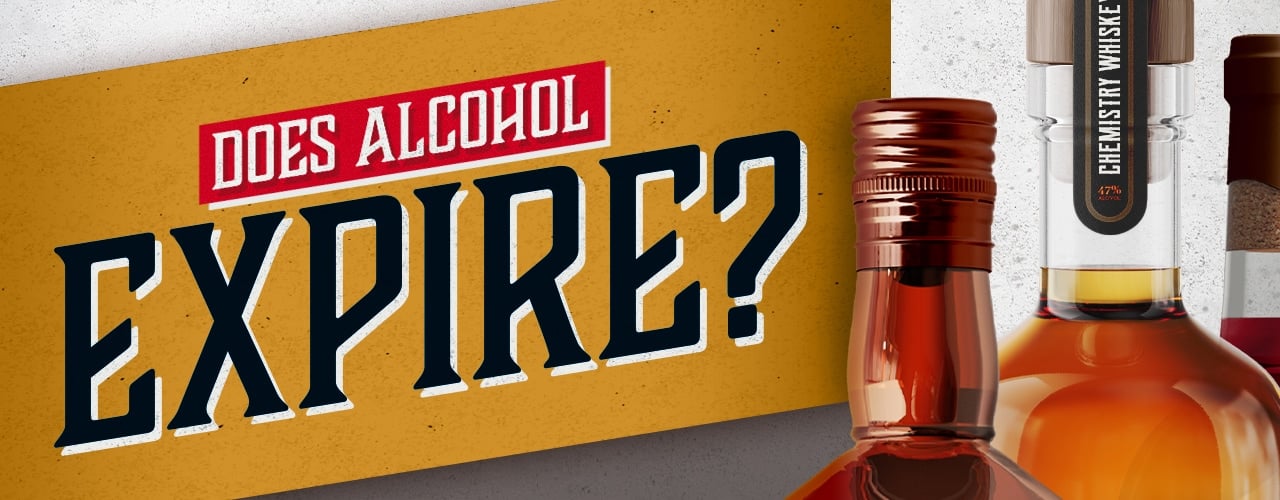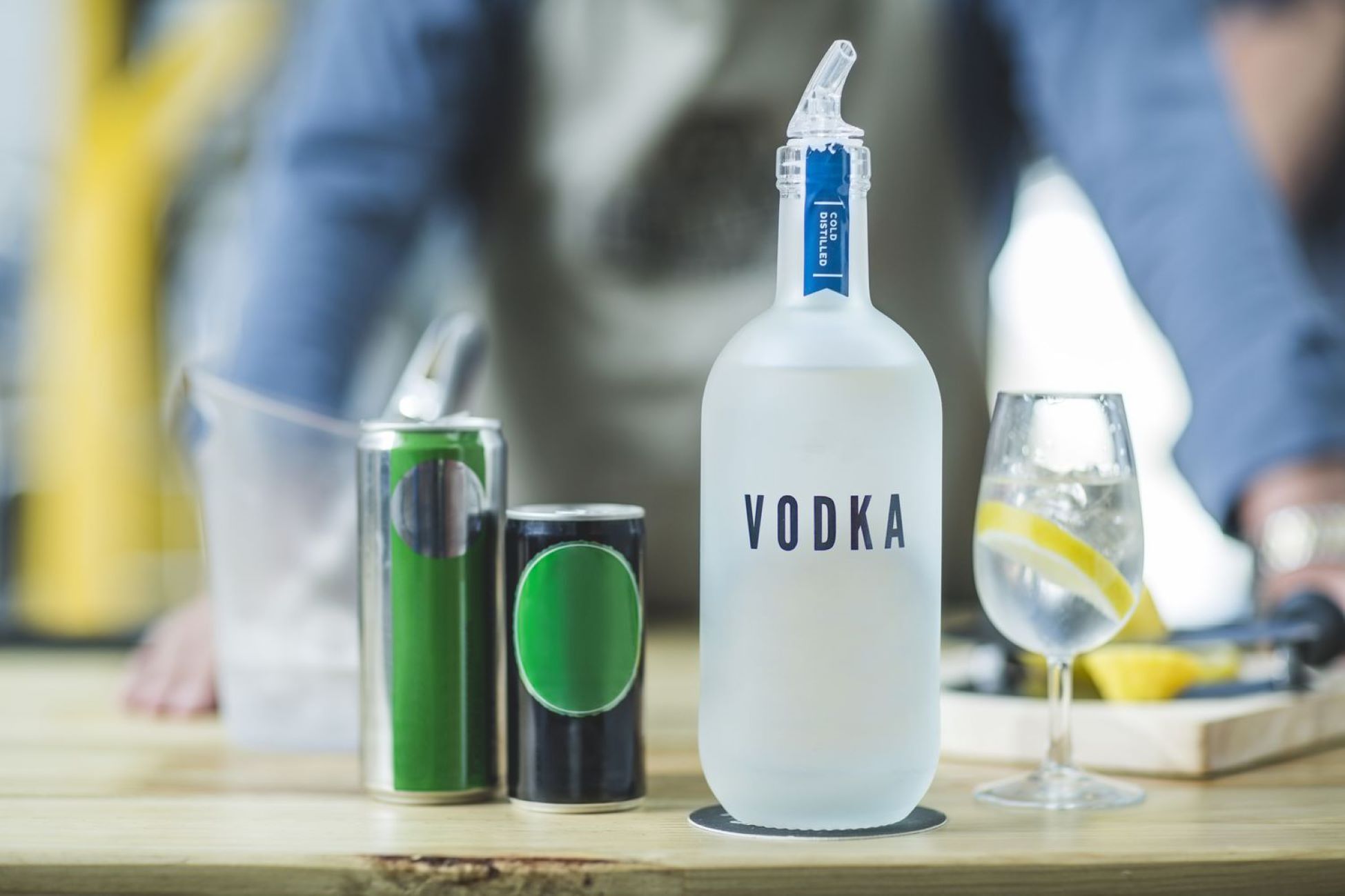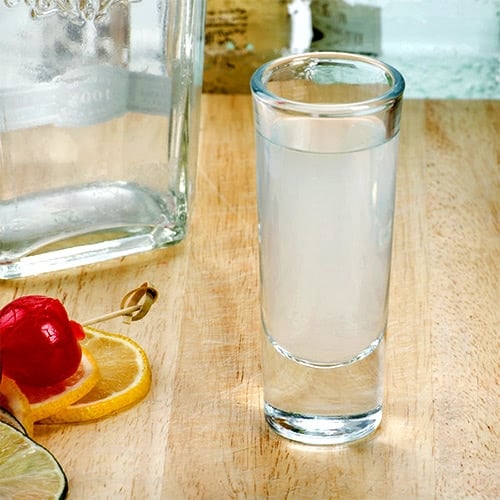Understanding Vodka Shelf Life

Vodka, a popular distilled spirit, has an impressive shelf life. Unopened bottles of vodka can last for an extended period, often several years, thanks to its high alcohol content. However, it’s essential to note that the shelf life of vodka can vary depending on factors such as the brand, quality, and storage conditions. Properly stored vodka in a cool, dark place can maintain its quality for an extended period. It’s crucial to check the bottle’s label or consult the manufacturer’s instructions for specific information about the shelf life of a particular vodka product.
Factors Affecting The Shelf Life Of Vodka
Several factors can impact the shelf life of vodka. These include:
- Quality of the vodka: Higher quality vodkas tend to have a longer shelf life due to superior distillation and filtration processes.
- Storage conditions: Vodka should be stored in a cool, dark place away from direct sunlight and extreme temperature fluctuations. Exposure to heat and light can accelerate the breakdown of the alcohol, potentially reducing its shelf life.
- Oxygen exposure: Like any other spirit, vodka can be affected by prolonged exposure to oxygen, which can lead to oxidation and a decrease in quality over time.
- Bottle seal: A properly sealed bottle can help prevent air and oxygen from entering, preserving the vodka’s freshness and extending its shelf life.
- Additives and flavorings: Vodkas that contain additives or flavorings may have a shorter shelf life, as these ingredients can potentially spoil or degrade over time.
- Manufacturing processes: Each vodka brand may have different production methods and ingredients, which can affect its shelf life. It is important to refer to the specific instructions provided by the manufacturer for accurate storage and shelf life information.
By considering these factors and storing vodka properly, it is possible to extend its shelf life and maintain its quality for a longer period.
How To Properly Store Vodka To Prolong Its Shelf Life
To prolong the shelf life of vodka, it is crucial to store it properly. Here are some tips:
- Keep it in a cool and dark place: Store vodka in a cool area away from direct sunlight and temperature fluctuations. Exposure to heat and light can degrade the alcohol and impact its quality.
- Seal the bottle tightly: Ensure the bottle is properly sealed to prevent air and oxygen from entering. This will help preserve the vodka’s freshness and extend its shelf life.
- Avoid storing near strong odors: Vodka can absorb odors from its surroundings, so keep it away from strong-smelling substances to maintain its original taste.
- Don’t store in the freezer long-term: While it’s fine to chill vodka in the freezer before serving, storing it there for extended periods can harm the quality and flavor.
By following these storage guidelines, you can extend the shelf life of your vodka and enjoy its full flavor for longer.
Signs Of Spoiled Vodka

Signs of spoiled vodka can manifest in various ways, indicating that the quality and taste of the alcohol have been compromised. One of the most notable signs is a significant change in taste and flavor. Spoiled vodka may have a diluted or off-taste that is distinctly different from its original characteristics. Additionally, visually inspect the vodka for any changes in appearance, such as discoloration, cloudiness, or crystallization around the cap. These visual cues can be indicators that the vodka has been altered or spoiled, potentially due to exposure to air or other factors.
Visual Cues To Identify Spoiled Vodka
Visual cues can be helpful in identifying spoiled vodka. When examining the appearance of the vodka, look for any changes in color, such as discoloration or a cloudy appearance. These visual indicators may indicate that the vodka has been altered or spoiled. Additionally, check around the cap for any signs of crystallization, which can be a sign of spoilage. It is important to note that if you observe any of these visual cues, it is best to discard the vodka to ensure your safety and enjoyment.
How To Tell If Vodka Has Gone Bad By Its Smell Or Taste
To determine if vodka has gone bad, pay attention to its smell and taste. Spoiled vodka may have a strong, unpleasant odor that resembles chemicals or rubbing alcohol. The aroma should be clean and neutral, without any off-putting or rotten odors. Similarly, if the vodka tastes harsh, bitter, or sour, it may be a sign of spoilage. Fresh vodka should have a smooth, clean taste. If the smell or taste is off, it’s best to discard the vodka and opt for a fresh bottle to ensure an enjoyable drinking experience.
Does Vodka Expire?

No, vodka does not technically expire. Vodka has a very long shelf life, especially if stored properly. Unlike many other alcoholic beverages, vodka has a high alcohol content, which acts as a natural preservative. This means that even if vodka is left unused for a long time, it will not spoil or become harmful to consume. However, over time, vodka might lose some of its quality and flavor due to oxidation and evaporation. It is still safe to drink, but the taste may not be as enjoyable. It’s best to consume vodka within a reasonable time frame for the best experience.
Exploring The Concept Of Vodka Expiration
Vodka, with its high alcohol content, does not technically expire. However, it can experience a decrease in quality over time. This is due to oxidation and evaporation, which can cause the vodka to lose its flavor and aroma. While the alcohol content acts as a natural preservative, it cannot prevent the gradual breakdown of compounds in the vodka. Therefore, it’s important to consume vodka within a reasonable time frame to ensure the best taste and experience. Remember, even though vodka may not spoil, it’s still important to store it properly to maintain its quality.
Safety Considerations When Consuming Old Vodka
When consuming old vodka, there are some safety considerations to keep in mind.
- Check for signs of spoilage: Before consuming old vodka, visually inspect it for any discoloration, sedimentation, or off-putting odor. If any of these signs are present, it is best to avoid drinking the vodka.
- Be aware of the alcohol content: Over time, the alcohol content of vodka may decrease slightly. This can impact its effectiveness as a disinfectant or preservative.
- Drink in moderation: As with any alcoholic beverage, it is important to consume old vodka in moderation. Excessive consumption can lead to negative health effects and impair judgment.
Remember, if you have any doubts about the quality or safety of old vodka, it is best to err on the side of caution and avoid drinking it.
Extending The Shelf Life Of Vodka

To extend the shelf life of vodka, there are a few simple strategies that can be implemented. Here are some tips to help keep your vodka fresh for longer:
- Store in a cool, dark place: Keep your vodka away from direct sunlight and heat, as these factors can expedite oxidation and spoilage.
- Seal the bottle tightly: Ensure that the bottle is properly sealed after each use to prevent evaporation and contamination.
- Avoid temperature fluctuations: Fluctuations in temperature can affect the quality of vodka. Try to keep the bottle in a consistent environment to maintain its integrity.
- Use airtight containers for infusions: If you are infusing your vodka with fruits or herbs, make sure to store the mixture in airtight containers to prevent bacteria growth.
By following these guidelines, you can help prolong the shelf life of your vodka and ensure that it remains fresh and enjoyable.
Tips To Extend The Shelf Life Of Your Vodka
- Store your vodka in a cool, dark place away from sunlight and heat, as these factors can accelerate oxidation and spoilage.
- Keep the bottle tightly sealed after each use to prevent evaporation and the entry of contaminants.
- Avoid temperature fluctuations by maintaining a consistent environment for your vodka storage.
- If you are infusing your vodka with fruits or herbs, use airtight containers to prevent bacterial growth.
- Consider using a vodka preserver or wine stopper to remove excess air from the bottle and slow down oxidation.
- Regularly check the expiration date on flavored vodkas and consume them before they expire.
- Keep track of the opening date of your vodka bottle and consume it within a reasonable timeframe to ensure optimal flavor and quality.
Ways To Prevent Vodka From Spoiling Prematurely
To prevent vodka from spoiling prematurely, it’s important to follow proper storage practices. Firstly, store the bottle in a cool, dark place away from sunlight and heat to avoid oxidation. Keep the bottle tightly sealed after each use to prevent evaporation and the entry of contaminants. Avoid temperature fluctuations by maintaining a consistent environment for your vodka storage. When infusing vodka with fruits or herbs, use airtight containers to prevent bacterial growth. Additionally, consider using a vodka preserver or wine stopper to remove excess air from the bottle and slow down oxidation. By following these measures, you can prolong the shelf life of your vodka and ensure its freshness and quality.
Can You Drink Expired Vodka?

It is generally not recommended to drink expired vodka. Expired vodka may have a change in taste and aroma, and consuming it could lead to an unpleasant drinking experience. Additionally, expired vodka may contain harmful bacteria or toxins that could cause illness. To ensure your safety, it’s best to dispose of expired vodka rather than consume it. If you have any doubts about the quality or safety of your vodka, it’s always better to err on the side of caution and choose a fresh bottle.
Safety Guidelines For Consuming Expired Vodka
When it comes to expired vodka, it is generally not recommended to consume it due to potential changes in taste, texture, and aroma. Additionally, expired vodka may contain harmful bacteria or toxins that could lead to illness. To ensure your safety, it is important to follow these safety guidelines when consuming vodka:
- Always check the expiration date on the bottle and discard any expired vodka.
- Trust your senses – if the vodka looks cloudy or has an off-putting smell or taste, it is best to avoid drinking it.
- Store vodka properly in a cool, dark, and dry place to maximize its shelf life and prevent spoilage.
- When in doubt, opt for a fresh bottle of vodka rather than risking the consumption of expired ones.
By following these guidelines, you can protect yourself from any potential health risks associated with consuming expired vodka.
Risks Associated With Drinking Spoiled Vodka
Drinking spoiled vodka can pose certain risks to one’s health. When vodka spoils, it may develop harmful bacteria or toxins that can lead to illness. Consuming expired vodka can result in symptoms such as nausea, vomiting, stomach pain, and even food poisoning. Additionally, spoiled vodka may have an unpleasant taste, texture, or aroma, making it undesirable to consume. It is always best to err on the side of caution and avoid drinking expired vodka to ensure one’s safety and well-being.
Conclusion

In conclusion, understanding the shelf life and spoilage of vodka is important to ensure its safety and quality. While vodka does not technically expire, it can deteriorate in terms of flavor and quality over time. Proper storage, such as keeping the bottle tightly sealed and away from direct sunlight and extreme temperatures, can help extend its shelf life. It is essential to be cautious when consuming old or expired vodka, as it may contain harmful bacteria or toxins that can cause illness. By following safety guidelines and storing vodka properly, one can enjoy this popular spirit without any health risks.
Summary Of Key Points Regarding Vodka Shelf Life And Spoilage
Vodka has a long shelf life, especially when unopened. Proper storage, such as keeping the bottle tightly sealed and away from sunlight and extreme temperatures, can help extend its shelf life. While vodka does not technically expire, it can deteriorate in terms of flavor and quality over time. Spoiled vodka may exhibit visual cues such as changes in color or sedimentation. It may also have an unpleasant smell or taste. It is important to exercise caution when consuming old or expired vodka, as it may contain harmful bacteria or toxins. Following safety guidelines and storing vodka properly can ensure a safe and enjoyable drinking experience.
Recommendations For Handling And Storing Vodka Safely
When it comes to handling and storing vodka safely, there are several recommendations to consider. Follow these tips to ensure the longevity and quality of your vodka:
- Always keep the bottle tightly sealed to prevent oxidation and evaporation.
- Store vodka in a cool, dark place, away from direct sunlight and extreme temperatures.
- Avoid storing vodka near strong-smelling substances, as it can absorb odors.
- Use a pour spout or measure carefully to avoid over-pouring and wasting the spirit.
- Clean the bottle’s cap and neck before resealing to prevent contamination.
- Keep vodka out of the reach of children and store it in a secure location.
By following these guidelines, you can enjoy your vodka safely and ensure it stays fresh for a longer period.
FAQ About Can Vodka Go Bad: Exploring The Shelf Life And Spoilage Of Vodka
Q: Does vodka have an expiration date or can it go bad?
A: Vodka does not have a specific expiration date like food products. It can last indefinitely if stored properly.
Q: How can you tell if vodka has gone bad?
A: Vodka typically does not spoil, but if it changes color, develops an off smell, or tastes strange, it may have deteriorated.
Q: What are the factors that can affect the shelf life of vodka?
A: Factors such as exposure to light, extreme temperatures, and improper storage can impact the quality of vodka over time.
Q: How should vodka be stored to ensure its longevity?
A: Vodka should be stored in a cool, dark place away from sunlight and heat sources. Keeping the bottle tightly sealed also helps maintain its quality.
Q: Can drinking expired vodka make you sick?
A: Drinking expired vodka that has gone bad may not necessarily make you sick, but it might taste unpleasant due to changes in flavor.
Q: Is it safe to consume old, unopened bottles of vodka?
A: If stored correctly, unopened bottles of vodka can be safe to consume even after a long period. However, quality may deteriorate over time.
Q: Does freezing vodka affect its shelf life or safety for consumption?
A: Freezing vodka does not significantly impact its shelf life or safety. However, it can affect the texture and taste, causing it to thicken temporarily.

Boise Co-op Wine Shop is the Treasure Valley’s ultimate destination for wine enthusiasts. With a focus on providing an exceptional selection of wines, our North End Wine Shop and robust wine departments cater to our valued customers’ diverse tastes and preferences. Founded to bring the finest wines to our community, Boise Co-op Wine Shop has established itself as the go-to source for quality and variety. Our commitment to offering an extensive range of wines ensures that every visitor can find the perfect bottle for any occasion, whether it’s a special celebration or a casual gathering.